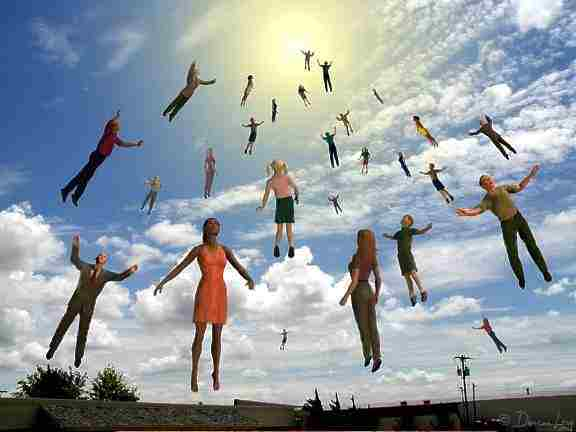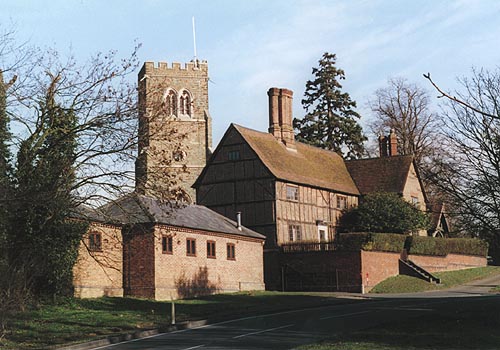 One of the hymns at this morning’s Royal Wedding was “Jerusalem”, William Blake’s c. 1808 poem “And did those feet in ancient time” as set to music by Sir Hubert Parry in 1916. This is certainly magnificent music
One of the hymns at this morning’s Royal Wedding was “Jerusalem”, William Blake’s c. 1808 poem “And did those feet in ancient time” as set to music by Sir Hubert Parry in 1916. This is certainly magnificent music, all the more so when sung in a packed Westminster Abbey as part of a great state occasion. But is it a Christian hymn suitable for use in Christian worship?
The illustration shows the words as originally penned by Blake, followed by the interesting Bible verse
Would to God that all the Lord’s people were Prophets. (Numbers 11:29)
Here are the words as sung this morning, taken from Archbishop Cranmer’s posting of the Royal Wedding order of service:
AND did those feet in ancient time
walk upon England’s mountains green?
And was the holy Lamb of God
on England’s pleasant pastures seen?
And did the countenance divine
shine forth upon our clouded hills?
And was Jerusalem builded here
among those dark satanic mills?Bring me my bow of burning gold!
Bring me my arrows of desire!
Bring me my spear! O clouds, unfold!
Bring me my chariot of fire!
I will not cease from mental fight,
nor shall my sword sleep in my hand,
till we have built Jerusalem
in England’s green and pleasant land.
Now I think we have to agree that the first verse is based on an unhistorical legend. The historical Jesus never visited England, and certainly never established here anything like Jerusalem. Yet there is also a truth here: Jesus came to England by his Spirit through his church, and the church made a start on its task of building the city of God here.
This leads into the second verse, in which Blake seems to recognise that Jerusalem will be built “in England’s green and pleasant land” only by the efforts of Christian people like Blake himself. But for those efforts to be successful heavenly weapons are required.
Surely Blake was spot on here in sharing the Christian aspiration to build the new Jerusalem, the city of God, in England and in every other country. As I have been arguing in my recent posts on the last things like this one, the task of the church is not to wait around to be taken out of this world but rather to transform this world into God’s kingdom.
So, I would conclude, this is a wonderful poem and expression of Christian aspirations. The musical setting is magnificent. It is an appropriate part of a ceremony in which a Christian couple set out on a life together hopefully to serve God and build his kingdom in England.
But is it a hymn? No, strictly speaking, because a hymn is a song of praise. In fact by this definition many of the songs used in current Christian worship, traditional and modern, are not hymns. “Jerusalem” is not a song of praise, but a song of commitment to serving God’s purposes. We can only hope and pray that William and Catherine have genuinely committed themselves to this and will have the strength to live it out.



 The problem for the Corinthians was that they were only grasping one side of the Christian life. They wrongly thought that they were living in the fullness of the life of the kingdom of God. But as it is, in some words which I quoted in
The problem for the Corinthians was that they were only grasping one side of the Christian life. They wrongly thought that they were living in the fullness of the life of the kingdom of God. But as it is, in some words which I quoted in  It’s not yet eleven o’clock in the morning, and already today six people have found my post
It’s not yet eleven o’clock in the morning, and already today six people have found my post  If there is a Rapture, who will preach to those left behind? Surely not many churches will be empty the following Sunday. Few congregations will have been 100% raptured, and others will very likely join them to find out what is happening.
If there is a Rapture, who will preach to those left behind? Surely not many churches will be empty the following Sunday. Few congregations will have been 100% raptured, and others will very likely join them to find out what is happening.



 Meanwhile a message to any cyclists who might take advantage of this glorious weather and venture on the road anywhere near Husborne Crawley (yes, it’s a real place, a village near Milton Keynes): watch out for
Meanwhile a message to any cyclists who might take advantage of this glorious weather and venture on the road anywhere near Husborne Crawley (yes, it’s a real place, a village near Milton Keynes): watch out for